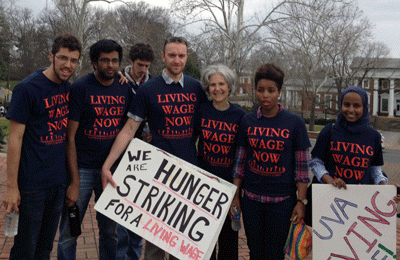
Crisis of democracy: the Virginia hunger strikeBy - - No comments
|
|
| Rate It | View Ratings |

OpEdNews depends upon can't survive without your help.
If you value this article and the work of OpEdNews, please either Donate or Purchase a premium membership.
If you've enjoyed this, sign up for our daily or weekly newsletter to get lots of great progressive content.
Most Popular Articles by this Author: (View All Most Popular Articles by this Author)
Media bias: Trayvon Martin and Ramarley Graham
D.C. Protesters March Against Pepco
Crisis of democracy: the Virginia hunger strike
Healthcare failure: the occupied Palestinian territories
Healthcare considerations in the American decline
Misanthropic healthcare: the U.S. model
To View Comments or Join the Conversation:



